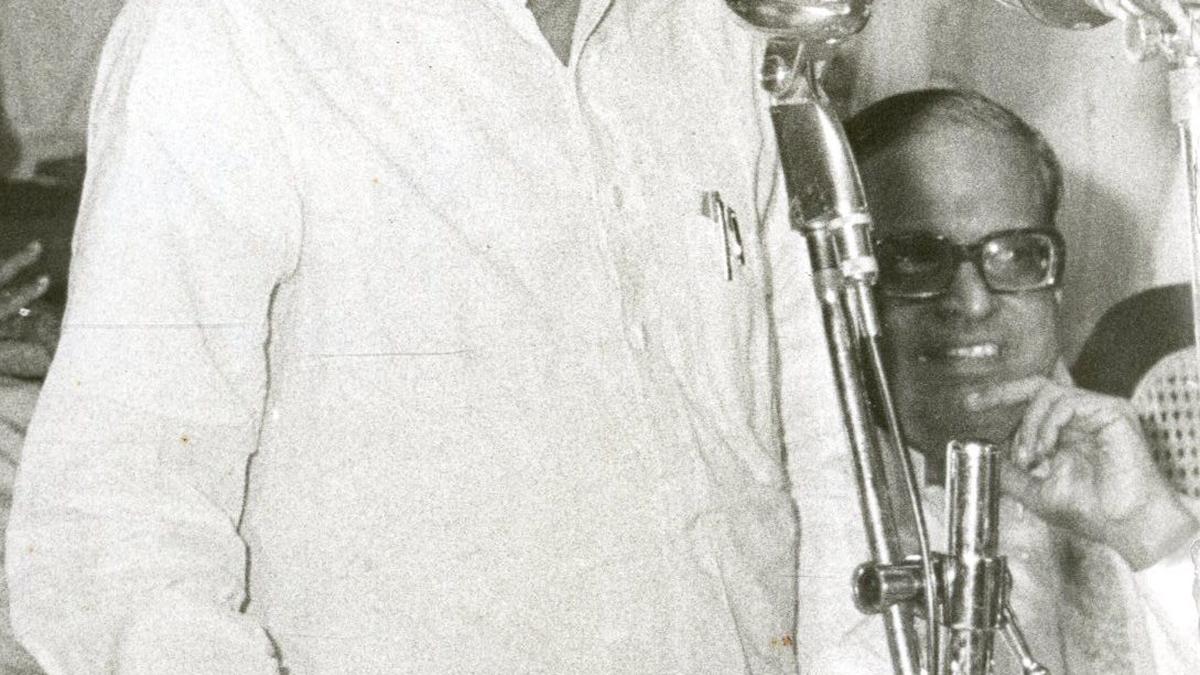
A few distinguished Tamil scholars whose contributions deserve better recognition
The Hindu
Distinguished Tamils' contributions to Tamil language and culture are acknowledged only ritually, prompting calls for more recognition and memorials.
Quite a few distinguished Tamils have made significant contributions to the growth of their language and culture, especially during the pre-Independence era. However, their contributions are acknowledged only in a ritualistic manner at commemorative events.
V. Gopalan, a nonagenarian from Chennai, emphasises the importance of more thoroughly recognising the efforts of numerous scholars and connoisseurs in the development and promotion of the Tamil language. He notes that these scholars played a crucial role, despite challenging circumstances. Among them, he says, are U. V. Swaminatha Iyer (U.Ve.Sa.), known as the Grand Old Man of Tamil; M.P. Sivagnanam (Ma.Po.Si.), referred to as Silamboli Selvar; T.K. Chidambaranatha Mudaliar (TKC), popularly known as Rasika Mani; R.K. Shanmukham Chetty, an influential parliamentarian and India’s first Finance Minister; and Desika Vinayagam Pillai, renowned as Kavimani.
All the figures are, in a sense, contemporaries: U.Ve.Sa. (1855-1942), Ma.Po.Si. (1906-1995); Rasika Mani (1881-1954), Shanmukham Chetty (1892-1953), and Kavimani (1876-1954). There is a memorial for U.Ve.Sa. at Uthamathanapuram, his place of birth in Tiruvarur district, and a statue on the campus of Presidency College, Chennai. There is a statue for Ma.Po.Si. at T. Nagar.
The government remembers many prominent personalities, including those who had worked for the promotion of Tamil, by garlanding their statues or busts at 81 memorials maintained by the Information Department, besides organising 41 State-level and 79 district-level events. Since 2012, the Tamil Development Department has been giving away an award to perpetuate Swaminatha Iyer’s memory. There are awards named after many others, too. On April 29 (the birth anniversary of Pavendar Bharatidasan) every year, the Tamil Development Department pays tributes to poets of the Sangam era at the pillars erected in different parts.
Memorials can be built for the others too. Or, scholarships, awards, and prizes can be instituted at all the educational institutions to perpetuate their memory. Immediately after the death of U.Ve.Sa., the British government was requested by many to name the Presidency College after him. But this appeal is yet to be acted upon, says Mr. Gopalan.
To the uninitiated, it must be pointed out that the personalities are no mere mortals. To quote Encyclopaedia of Indian Literature (Vol. V), published by the Sahitya Akademi (as reprinted in 1999), U.Ve.Sa. “resurrected Tamil’s rich ancient literature and cultural heritage from appalling neglect and wanton destruction of centuries. What he revived constitutes the major bulk of Tamil’s ancient and medieval literature.”
When the Tamil scholar died on April 28, 1942, The Hindu wrote two days later: “Great classics like Manimekalai and Tholkappiyam were beyond the reach of average students till Dr. Swaminatha Aiyar took up the task of editing and annotating them. His greatness lay not merely in the fact that he edited these and other classics but also in the fact that he taught several generations of students to read and write Tamil correctly.”





















 Run 3 Space | Play Space Running Game
Run 3 Space | Play Space Running Game Traffic Jam 3D | Online Racing Game
Traffic Jam 3D | Online Racing Game Duck Hunt | Play Old Classic Game
Duck Hunt | Play Old Classic Game











